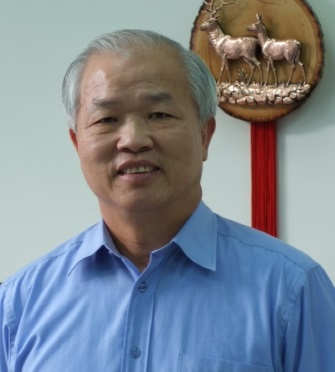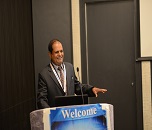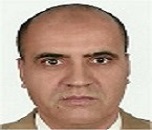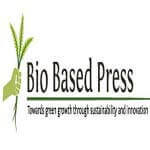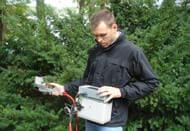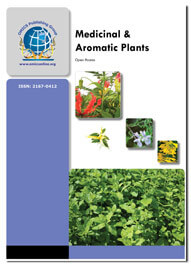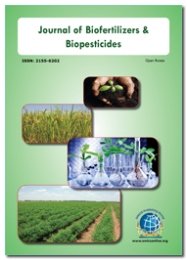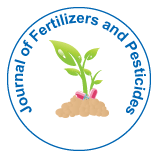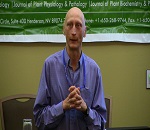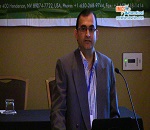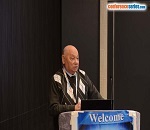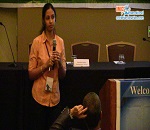Theme: Explore Plant Science Research
Plant Science 2017
Conference Series LLC invites all the participants from all over the world to attend “3rd Global Summit on Plant Science” during August 07-09, 2017 Rome, Italy which includes prompt keynote presentations, Oral talks, Poster presentations Young Research Forum and Exhibitions.
Plant Science 2017 is the premier event that brings together a unique and international mix of experts, researchers and decision makers both from academia and industry across the globe to exchange their knowledge, expertise and research innovations to build a world class plant Science conference.
It’s our greatest pleasure to welcome you to the official website of 3rd Global Summit on Plant Science that aims at bringing together the Professors, Researchers, and scientists, Lab Scientists to provide an international forum for the dissemination of original research results, new ideas and practical development experiences which concentrate on both theory and practices. The conference will be held in August 07-09, 2017 Rome, Italy. The theme of the conference is around, “Explore Plant Science Research”.150+ attendees from all over the world
The event focuses on aspects such as plant science research aspects and plant biochemistry, molecular marker development, crop/ trait improvement, disease resistance, epigenetics, Plant Tissue Culture and Plant Biotechnology, Medicinal and Aromatic Plant Sciences, Agricultural Science, Soil Science and Soil-Plant Nutrition, Seed Science and Technology and pathology as well understanding tools to overcome barrier and enable successful data analysis and management. Presentations concentrate not only particular to Plant Science but also crop and forestry research, Arabidopsis, biofuels, Plant Root and Tree Root System, Plant/Agriculture - Industrial By-products Entrepreneurs Investment B2B
Why to attend???
With members from around the world focused on learning about Plant Science and its advances; this is your best opportunity to reach the largest assemblage of participants from the Plant Science and Agriculture community. Conduct presentations, distribute information, meet with current and potential scientists, make a splash with new advancements and developments, and receive name recognition at this 3-day event. World-renowned speakers, the most recent techniques, developments, and the newest updates in Plant Science are hallmarks of this conference.
Target Audience:
- Plant Science / Agricultural Students, Scientists
- Plant Science Researchers
- Plant Science Faculty
- Agricultural Universities
- Horticulture and Landscaping
- Plant and Agriculture Associations and Societies
- Business Entrepreneurs
- Training Institutes
- Seed Science and Technology
- Soil science and soil-plant nutrition
- Medicinal and Aromatic Plant Sciences
- Forest Science
- Manufacturing Agricultural Devices Companies
- R&D Laboratories
Looking forward to meet you @ Rome, Italy
We invite you to join us in Rome, Italy to promote Plant Science event!!!!!
Track 1: Plant Physiology and Biochemistry
The Study of plant Physiology, growth, metabolism and reproduction in living plants and explores the chemical processes within and related to living organisms and some significant process such as photosynthesis, respiration, plant nutrition, plant hormone functions, tropisms, photo-morphogenesis, environmental physiology (plant diseases), seed germination, dormancy and different stomata function and transpiration, plant water relations. Plant biochemistry is related to molecular science such as micromolecules and plant metabolisms, Biomolecules, carbohydrates, amino acid, lipids.
1.1 Biotic and Abiotic stress in plants
1.2 Photo- morphogenesis & Photo-periodism
1.3 Plant hormones & Nutrition
1.4 Molecular Plant breeding and experimental Plant Breeding
1.5 Plant Glycobiology
1.6 Plant Physiology
Related Conferences
3rd Global Summit on Plant Science to be held during August 07-09, 2017 at Rome, Italy; In Asia Thailand chosen for 7th World summit on Plant Genomics during July 03-05, 2017; 2nd International Conference on Plant Physiology June 26-28, 2017 Bangkok, Thailand; 5th International Conference on Genomics August 08-09, 2016 Las Vegas, Nevada, USA, UK; 9th International Conference on Genomics and Pharmacogenomics June 15-16, 2017 London, UK; International Conference on Green Energy November 28-30, 2016 Atlanta, USA; Plant Biology 2017 July 9-13 Austin, Texas; 5th Pan American Plants and Bio Energy Meeting August 4-7, 2017, Sante Fe, New Mexico; Plant Genomics Congress September 12-13, 2017 Philadelphia, USA; Plant Biology Europe: EPSO/FESPB 2016 Congress June 26-30, 2017 Prague, Czech Republic; WISP Course on wheat genetics November 21-23. 2016 John Innes Centre, Norwich, UK; International Society for Plant Pathology, American Society of Plant Biologists (ASPB),Australian Society of Plant Scientists (ASPS), Argentinean Society of Plant Physiology (SAFV), American Society of Agronomy (ASA), African Crop Science Society (ACSS), Brazilian Society of Plant Physiology (SBFV)
Track 2: Plant Bio-technology and Plant Tissue Culture
Plant Biotechnology is prominent in the field of medicine interfacing biotechnology and bioinformatics, the molecular characterization of medicinal plants; molecular farming; and result from chemistry, nanotechnology, pharmacology, agriculture, Biomass and biofuels as well. Plant tissue culture is the growth of plant cells outermost an intact plant. It depends on maintaining plant tissue in lab conditions on a suitable nutrient medium. The culture can be sustained as a mass of undifferentiated cells for a broad area for a period of time, or regenerated into whole plants. The dissimilar techniques used in plant tissue culture. Plant tissue culture is mostly used to produce clones of a plant in a method known as micro-propagation with different stages. Plant Biotechnology is the technology which is used for getting modern product with high yield and at faster rate.
2.1 Micropropagation in Plants
2.2 Green Plant Biotechnology
2.3 Biomass, Biofuel and By-products
2.4 Recent advances in Plant Biotechnology
Related Conferences
Plant Biology 2017 July 9-13 Austin, Texas; 5th Pan American Plants and Bio Energy Meeting August 4-7, 2017, Sante Fe, New Mexico; Plant Genomics Congress September 12-13, 2017 Philadelphia, USA; 3rd Global Summit on Plant Science to be held during August 07-09, 2017 at Rome, Italy; In Asia Thailand chosen for 7th World summit on Plant Genomics during July 03-05, 2017; 2nd International Conference on Plant Physiology June 26-28, 2017 Bangkok, Thailand; 5th International Conference on Genomics August 08-09, 2016 Las Vegas, Nevada, USA, UK; Plant Biology Europe: EPSO/FESPB 2016 Congress June 26-30, 2017 Prague, Czech Republic; WISP Course on wheat genetics November 21-23. 2016 John Innes Centre, Norwich, UK; 9th International Conference on Genomics and Pharmacogenomics June 15-16, 2017 London, UK; International Conference on Green Energy November 28-30, 2016 Atlanta, USA; International Society for Plant Pathology, American Society of Plant Biologists (ASPB),Australian Society of Plant Scientists (ASPS), Argentinean Society of Plant Physiology (SAFV), American Society of Agronomy (ASA), African Crop Science Society (ACSS), Brazilian Society of Plant Physiology (SBFV)
Track 3: Plant Pathology and Plant-Micro-Biology
Plant pathology is the scientific discovery of diseases in plants caused by pathogens and environmental conditions. Organisms that cause viral disease include fungi, bacteria, viruses, viroids, virus-like organisms, phytoplasma, protozoa, nematodes and dependable plants. A plant considered undesirable, unattractive, or troublesome, especially one that grows where it is no need and often grows or spreads fast or takes the place of desired plants. It is an aquatic plant or alga, especially seaweed.
3.1 Plant Microbial Interactions
3.2 plant Immune System and Plant Virology
3.3 Phytoplasma and Nematodes
3.4 Molecular and genetic basis of plant-insect interaction
3.5 Plant Diseases Epidemiology
Related Conferences
Plant Genomics Congress September 12-13, 2017 Philadelphia, USA; 3rd Global Summit on Plant Science to be held during August 07-09, 2017 at Rome, Italy; In Asia Thailand chosen for 7th World summit on Plant Genomics during July 03-05, 2017; 2nd International Conference on Plant Physiology June 26-28, 2017 Bangkok, Thailand; Plant Biology 2017 July 9-13 Austin, Texas; 5th Pan American Plants and Bio Energy Meeting August 4-7, 2017, Sante Fe, New Mexico; 5th International Conference on Genomics August 08-09, 2016 Las Vegas, Nevada, USA; Plant Biology Europe: EPSO/FESPB 2016 Congress June 26-30, 2017 Prague, Czech Republic; WISP Course on wheat genetics November 21-23. 2016 John Innes Centre, Norwich, UK; 9th International Conference on Genomics and Pharmacogenomics June 15-16, 2017 London, UK; International Conference on Green Energy November 28-30, 2016 Atlanta, USA; International Society for Plant Pathology, American Society of Plant Biologists (ASPB),Australian Society of Plant Scientists (ASPS), Argentinean Society of Plant Physiology (SAFV), American Society of Agronomy (ASA), African Crop Science Society (ACSS), Brazilian Society of Plant Physiology (SBFV)
Track 4: Plant Nanotechnology
The complex and different responses of plants to nanoparticles, the signal transduction mechanisms involved, and the regulation of DNA expression. Further, it shows the photosynthesis of nanoparticles, the role of nanoparticles in the antioxidant systems of botany and agriculture, the beneficial and harmful effects of nanoparticles on plants, and the application of nanoparticles and nanotubes to MS, aiming ultimately at an analysis of the metabolomics of plants. The increasing role of inventions in the field of nanotechnology is producing novel applications in the fields of biotechnology and agriculture. Nanoparticles have received much response because of the unique physico-chemical properties of these compounds. In the plant biology, nanoparticles are used as “smart” delivery systems, prompting the Nobel Prize winner P. Ehrlich support to get these components as “magic bullets.” Nanotechnology also play an important role in agriculture as compound fertilizers and minute-pesticides, acting as chemical delivery agents that target molecules to specific cellular organelles in plants.
4.1 Medicinal plant nanotechnology
4.2 Nanotechnology application in plant tissue culture
4.3 Nanotechnology applications in plant pathology
4.4 Nanotechnology in plant nutrition
Related Conferences
Plant Biology Europe: EPSO/FESPB 2016 Congress June 26-30, 2017 Prague, Czech Republic; WISP Course on wheat genetics November 21-23. 2016 John Innes Centre, Norwich, UK; 9th International Conference on Genomics and Pharmacogenomics June 15-16, 2017 London, UK; International Conference on Green Energy November 28-30, 2016 Atlanta, USA; Plant Genomics Congress September 12-13, 2017 Philadelphia, USA; 3rd Global Summit on Plant Science to be held during August 07-09, 2017 at Rome, Italy; In Asia Thailand chosen for 7th World summit on Plant Genomics during July 03-05, 2017; 2nd International Conference on Plant Physiology June 26-28, 2017 Bangkok, Thailand; Plant Biology 2017 July 9-13 Austin, Texas; 5th Pan American Plants and Bio Energy Meeting August 4-7, 2017, Sante Fe, New Mexico; 5th International Conference on Genomics August 08-09, 2016 Las Vegas, Nevada, USA;
International Society for Plant Pathology, American Society of Plant Biologists (ASPB),Australian Society of Plant Scientists (ASPS), Argentinean Society of Plant Physiology (SAFV), American Society of Agronomy (ASA), African Crop Science Society (ACSS), Brazilian Society of Plant Physiology (SBFV)
Track 5: Plant Morphology and Plant Metabolism
Plant morphology is all about with both the vegetative structures of plants, as well as the reproductive structures. It includes plant development, floral structure, pollination and fertilization. Plant morphology provides an overview of the science of deals with the external form of plants. Plant metabolism includes the complex of physical and chemical events of photosynthesis, respiration, and the process of natural compounds. Plant respiration is biochemical process in plants whereby specific substrates are oxidation with a subsequent release of carbon dioxide, CO2.
5.1 Vegetative propagation
5.2 Plant Cell Cycle and Cell Division
5.3 Primary and Secondary Growth
5.4 Pollination and fertilization
Related Conferences
Plant Biology Europe: EPSO/FESPB 2016 Congress June 26-30, 2017 Prague, Czech Republic; WISP Course on wheat genetics November 21-23. 2016 John Innes Centre, Norwich, UK; 9th International Conference on Genomics and Pharmacogenomics June 15-16, 2017 London, UK; International Conference on Green Energy November 28-30, 2016 Atlanta, USA; Plant Genomics Congress September 12-13, 2017 Philadelphia, USA; 3rd Global Summit on Plant Science to be held during August 07-09, 2017 at Rome, Italy; In Asia Thailand chosen for 7th World summit on Plant Genomics during July 03-05, 2017; 2nd International Conference on Plant Physiology June 26-28, 2017 Bangkok, Thailand; Plant Biology 2017 July 9-13 Austin, Texas; 5th Pan American Plants and Bio Energy Meeting August 4-7, 2017, Sante Fe, New Mexico; 5th International Conference on Genomics August 08-09, 2016 Las Vegas, Nevada, USA;
International Society for Plant Pathology, American Society of Plant Biologists (ASPB),Australian Society of Plant Scientists (ASPS), Argentinean Society of Plant Physiology (SAFV), American Society of Agronomy (ASA), African Crop Science Society (ACSS), Brazilian Society of Plant Physiology (SBFV)
Track 6: Plant & Forest Ecology and its Diversity
The plants require water and minerals come from the soil, while carbon dioxide comes from the air. Macronutrients and Micronutrients are the essential elements required by plants. Soil quality is a major determinant of plant distribution and growth. Nitrogen is often the mineral that has the greatest effect on plant growth. Plants require nitrogen as a component of proteins, nucleic acids, chlorophyll. Biological nitrogen fixation (BNF) occurs when atmospheric nitrogen is converted to ammonia by an enzyme called nitrogenase. Soil science is the study of soil as a natural resource on the surface of the Earth including soil formation, classification and mapping and soil erosion.
6.1 Botany plant ecology
6.2 Advanced plant and Forest ecology
6.3 Application of plant and forest ecology
6.4 Components of Plant and forest ecology
Related Conferences
Plant Biology Europe: EPSO/FESPB 2016 Congress June 26-30, 2017 Prague, Czech Republic; WISP Course on wheat genetics November 21-23. 2016 John Innes Centre, Norwich, UK; 9th International Conference on Genomics and Pharmacogenomics June 15-16, 2017 London, UK; International Conference on Green Energy November 28-30, 2016 Atlanta, USA; Plant Genomics Congress September 12-13, 2017 Philadelphia, USA; 3rd Global Summit on Plant Science to be held during August 07-09, 2017 at Rome, Italy; In Asia Thailand chosen for 7th World summit on Plant Genomics during July 03-05, 2017; 2nd International Conference on Plant Physiology June 26-28, 2017 Bangkok, Thailand; Plant Biology 2017 July 9-13 Austin, Texas; 5th Pan American Plants and Bio Energy Meeting August 4-7, 2017, Sante Fe, New Mexico; 5th International Conference on Genomics August 08-09, 2016 Las Vegas, Nevada, USA;
International Society for Plant Pathology, American Society of Plant Biologists (ASPB),Australian Society of Plant Scientists (ASPS), Argentinean Society of Plant Physiology (SAFV), American Society of Agronomy (ASA), African Crop Science Society (ACSS), Brazilian Society of Plant Physiology (SBFV)
Plant Genetics and epigenetics
Transgenes appear to be particularly sensitive to epigenetic variation which can lead to transgene silencing, i.e. the complete or partial inactivation of transgene expression. Plants are ideal model systems to study the influence of changing environmental conditions on epigenetic patterns. We are especially interested to understand how certain genomic regions become targets for epigenetic modification and how environmental stress affects epigenetic gene regulation. Our applied work investigates how transgene silencing can be prevented and how epigenetic variation can be exploited for novel breeding strategies
Gregory Mendel plant genetics
Advanced plant genetics
Genotyping-by-sequencing for plant breeding and genetics
Related Conferences
Plant Biology Europe: EPSO/FESPB 2016 Congress June 26-30, 2017 Prague, Czech Republic; WISP Course on wheat genetics November 21-23. 2016 John Innes Centre, Norwich, UK; 9th International Conference on Genomics and Pharmacogenomics June 15-16, 2017 London, UK; International Conference on Green Energy November 28-30, 2016 Atlanta, USA; Plant Genomics Congress September 12-13, 2017 Philadelphia, USA; 3rd Global Summit on Plant Science to be held during August 07-09, 2017 at Rome, Italy; In Asia Thailand chosen for 7th World summit on Plant Genomics during July 03-05, 2017; 2nd International Conference on Plant Physiology June 26-28, 2017 Bangkok, Thailand; Plant Biology 2017 July 9-13 Austin, Texas; 5th Pan American Plants and Bio Energy Meeting August 4-7, 2017, Sante Fe, New Mexico; 5th International Conference on Genomics August 08-09, 2016 Las Vegas, Nevada, USA;
International Society for Plant Pathology, American Society of Plant Biologists (ASPB),Australian Society of Plant Scientists (ASPS), Argentinean Society of Plant Physiology (SAFV), American Society of Agronomy (ASA), African Crop Science Society (ACSS), Brazilian Society of Plant Physiology (SBFV)
Plant Breeding and Molecular Breeding
Plant breeding is the technology which is used for Plant Molecular Biology to select, or in the case of genetic modification, to place particular traits into plants. Molecular breeding such as marker assisted selection and doubled haploids are immensely useful techniques. There is way that through plant breeding can also utilized by organic cultivation.
Modern Plant Breeding Techniques
Transgenic Plants and Green Revolution
Plant breeding in organic agriculture
Plant Metabolism and Metabolic Engineering
Related Conferences
Plant Biology Europe: EPSO/FESPB 2016 Congress June 26-30, 2017 Prague, Czech Republic; WISP Course on wheat genetics November 21-23. 2016 John Innes Centre, Norwich, UK; 9th International Conference on Genomics and Pharmacogenomics June 15-16, 2017 London, UK; International Conference on Green Energy November 28-30, 2016 Atlanta, USA; Plant Genomics Congress September 12-13, 2017 Philadelphia, USA; 3rd Global Summit on Plant Science to be held during August 07-09, 2017 at Rome, Italy; In Asia Thailand chosen for 7th World summit on Plant Genomics during July 03-05, 2017; 2nd International Conference on Plant Physiology June 26-28, 2017 Bangkok, Thailand; Plant Biology 2017 July 9-13 Austin, Texas; 5th Pan American Plants and Bio Energy Meeting August 4-7, 2017, Sante Fe, New Mexico; 5th International Conference on Genomics August 08-09, 2016 Las Vegas, Nevada, USA;
International Society for Plant Pathology, American Society of Plant Biologists (ASPB),Australian Society of Plant Scientists (ASPS), Argentinean Society of Plant Physiology (SAFV), American Society of Agronomy (ASA), African Crop Science Society (ACSS), Brazilian Society of Plant Physiology (SBFV)
Plant Science and Natural Products
Transgenes appear to be particularly sensitive to epigenetic variation which can lead to transgene silencing, i.e. the complete or partial inactivation of transgene expression. Plants are ideal model systems to study the influence of changing environmental conditions on epigenetic patterns. We are especially interested to understand how certain genomic regions become targets for epigenetic modification and how environmental stress affects epigenetic gene regulation. Our applied work investigates how transgene silencing can be prevented and how epigenetic variation can be exploited for novel breeding strategies
Extracting ingredients for cosmetics using green technologies
Sustainable business practices
Natural replacements for petrochemical ingredients
Chitosan as a basic for personal care products
Advances in Plant Science research
Related Conferences
Plant Biology Europe: EPSO/FESPB 2016 Congress June 26-30, 2017 Prague, Czech Republic; WISP Course on wheat genetics November 21-23. 2016 John Innes Centre, Norwich, UK; 9th International Conference on Genomics and Pharmacogenomics June 15-16, 2017 London, UK; International Conference on Green Energy November 28-30, 2016 Atlanta, USA; Plant Genomics Congress September 12-13, 2017 Philadelphia, USA; 3rd Global Summit on Plant Science to be held during August 07-09, 2017 at Rome, Italy; In Asia Thailand chosen for 7th World summit on Plant Genomics during July 03-05, 2017; 2nd International Conference on Plant Physiology June 26-28, 2017 Bangkok, Thailand; Plant Biology 2017 July 9-13 Austin, Texas; 5th Pan American Plants and Bio Energy Meeting August 4-7, 2017, Sante Fe, New Mexico; 5th International Conference on Genomics August 08-09, 2016 Las Vegas, Nevada, USA;
International Society for Plant Pathology, American Society of Plant Biologists (ASPB),Australian Society of Plant Scientists (ASPS), Argentinean Society of Plant Physiology (SAFV), American Society of Agronomy (ASA), African Crop Science Society (ACSS), Brazilian Society of Plant Physiology (SBFV)
Plant Genome Sciences
Plant Genome Sciences are more complex than other eukaryotic genomes, and analysis reveals many evolutionary flips and turns of the DNA sequences over time. Plants show generally different chromosome numbers and varied ploidy levels. Overall, the proportions of plant genomes (both number of chromosomes and total nucleotide base-pairs) ex-hibits the greatest variation of any kingdom in the biological world. PGS are in the field of hydroponics, the products are developed through extensive and rigorous testing by a team of world-class research scientists. The products are specifically engineered and express to work based on plants’ genetic make-up, and PGS is one of the few companies that completely understands and comprehends the need for high-yielding and fast-growing plants. PGS is set up with a vision to provide quality plant nutrients, original technological know-how and all-inclusive end-to-end solutions to the evolving agriculture industry in all parts of the country.
Plant genomics scope in Europe
Genomics of plant responses to environmental stress
Related Conferences
Plant Biology Europe: EPSO/FESPB 2016 Congress June 26-30, 2017 Prague, Czech Republic; WISP Course on wheat genetics November 21-23. 2016 John Innes Centre, Norwich, UK; 9th International Conference on Genomics and Pharmacogenomics June 15-16, 2017 London, UK; International Conference on Green Energy November 28-30, 2016 Atlanta, USA; Plant Genomics Congress September 12-13, 2017 Philadelphia, USA; 3rd Global Summit on Plant Science to be held during August 07-09, 2017 at Rome, Italy; In Asia Thailand chosen for 7th World summit on Plant Genomics during July 03-05, 2017; 2nd International Conference on Plant Physiology June 26-28, 2017 Bangkok, Thailand; Plant Biology 2017 July 9-13 Austin, Texas; 5th Pan American Plants and Bio Energy Meeting August 4-7, 2017, Sante Fe, New Mexico; 5th International Conference on Genomics August 08-09, 2016 Las Vegas, Nevada, USA;
International Society for Plant Pathology, American Society of Plant Biologists (ASPB),Australian Society of Plant Scientists (ASPS), Argentinean Society of Plant Physiology (SAFV), American Society of Agronomy (ASA), African Crop Science Society (ACSS), Brazilian Society of Plant Physiology (SBFV)
Medicinal and Aromatic Plant Sciences
The importance of plants has been concluded by scholars since ancient period. Apart from the innumerable social benefits, much strength has been given to the plants of medicinal value. Majority of the population in developing countries assume on traditional system of medicine for their primary health care. Due to this increasing trend towards use of different system of medicine, natural medicinal plant resource in this world is under enormous pressure. Several Institution/ Organization/ Universities and Industries across the world have been steady in research and documentation of various conditions of these medicinal plants to frame a system for their preserving. In this way numerous research papers on each medicinal plant covering vast subject areas like Botany, Chemistry, Pharmacology, Pharmacy etc. are available. This will help the scientific community to keep themselves restore with the research and development work being implemented for a particular medicinal plant. This researcher will also be a source of favorable information for students, teachers, practitioners all those who are involved in their propagation etc.
Ornamental plants and bioactive compounds
Olive Bioactive: Applications and Prospects
Phytochemistry Experts Meeting
Drug discovery from natural sources and Herbal Medicines
Natural products in plant medicine
Related Conferences
Plant Biology Europe: EPSO/FESPB 2016 Congress June 26-30, 2017 Prague, Czech Republic; WISP Course on wheat genetics November 21-23. 2016 John Innes Centre, Norwich, UK; 9th International Conference on Genomics and Pharmacogenomics June 15-16, 2017 London, UK; International Conference on Green Energy November 28-30, 2016 Atlanta, USA; Plant Genomics Congress September 12-13, 2017 Philadelphia, USA; 3rd Global Summit on Plant Science to be held during August 07-09, 2017 at Rome, Italy; In Asia Thailand chosen for 7th World summit on Plant Genomics during July 03-05, 2017; 2nd International Conference on Plant Physiology June 26-28, 2017 Bangkok, Thailand; Plant Biology 2017 July 9-13 Austin, Texas; 5th Pan American Plants and Bio Energy Meeting August 4-7, 2017, Sante Fe, New Mexico; 5th International Conference on Genomics August 08-09, 2016 Las Vegas, Nevada, USA;
International Society for Plant Pathology, American Society of Plant Biologists (ASPB),Australian Society of Plant Scientists (ASPS), Argentinean Society of Plant Physiology (SAFV), American Society of Agronomy (ASA), African Crop Science Society (ACSS), Brazilian Society of Plant Physiology (SBFV)
Soil Science and Soil-Plant Nutrition
The plants need water and minerals come from the soil, while carbon dioxide comes from the air. Macronutrients and Micronutrients are the important elements required by plants. Soil quality is a major determinant of plant distribution and growth. Nitrogen Dioxide is often the mineral that has the more effect on plant growth. Plants require nitrogen as a component of amino acid, nucleic acids, and photosynthetic pigments. Biological nitrogen fixation (BNF) occurs when atmospheric nitrogen is converted to ammonia by an enzyme called nitrogenase. Soil science is the study of soil as a natural resource on the surface of the Earth along with soil formation, evolution and mapping and soil erosion.
Soil Fertility and Soil Biochemistry Experts Meeting
Soil Erosion and soil management Experts Meeting
Sustainable Soils and Soil Geology
Soil Morphology and soil management
Soil Remediation
Soil and Plant Analysis
Soil Health
Related Conferences
Plant Biology Europe: EPSO/FESPB 2016 Congress June 26-30, 2017 Prague, Czech Republic; WISP Course on wheat genetics November 21-23. 2016 John Innes Centre, Norwich, UK; 9th International Conference on Genomics and Pharmacogenomics June 15-16, 2017 London, UK; International Conference on Green Energy November 28-30, 2016 Atlanta, USA; Plant Genomics Congress September 12-13, 2017 Philadelphia, USA; 3rd Global Summit on Plant Science to be held during August 07-09, 2017 at Rome, Italy; In Asia Thailand chosen for 7th World summit on Plant Genomics during July 03-05, 2017; 2nd International Conference on Plant Physiology June 26-28, 2017 Bangkok, Thailand; Plant Biology 2017 July 9-13 Austin, Texas; 5th Pan American Plants and Bio Energy Meeting August 4-7, 2017, Sante Fe, New Mexico; 5th International Conference on Genomics August 08-09, 2016 Las Vegas, Nevada, USA;
International Society for Plant Pathology, American Society of Plant Biologists (ASPB),Australian Society of Plant Scientists (ASPS), Argentinean Society of Plant Physiology (SAFV), American Society of Agronomy (ASA), African Crop Science Society (ACSS), Brazilian Society of Plant Physiology (SBFV)
Forest Science and Technology
The Forest Science is a complex ecosystem consisting mainly of trees that buffer the earth and support a myriad of life forms. The trees help create a different environment which, in turn, affects the kinds of animals and plants that can continue in the forest. Trees are an important part of the environment. They clean the air, cool it on hot days, conserve heat at night, and act as attractive sound absorbers.
Plants provide a protective canopy that lessens the impact of raindrops on the soil, thereby decreasing soil erosion. The layer of leaves that fall around the tree prevents runoff and allows the water to drain into the soil. Roots help to hold the soil in place. Dead plants decompose to form humus, organic matter that holds the water and add nutrients to the soil. Plants provide habitat to different types of organisms. Birds build their nests on the branches of trees, animals and birds live in the hollows, insects and other organisms live in different parts of the plant. They produce large quantities of oxygen and take in carbon dioxide. Transpiration from the forests alters the relative humidity and precipitation in a place.
Forest Conservation
Terrestrial Ecosystem
Natural Vegetation and their Soil
Related Conferences
Plant Biology Europe: EPSO/FESPB 2016 Congress June 26-30, 2017 Prague, Czech Republic; WISP Course on wheat genetics November 21-23. 2016 John Innes Centre, Norwich, UK; 9th International Conference on Genomics and Pharmacogenomics June 15-16, 2017 London, UK; International Conference on Green Energy November 28-30, 2016 Atlanta, USA; Plant Genomics Congress September 12-13, 2017 Philadelphia, USA; 3rd Global Summit on Plant Science to be held during August 07-09, 2017 at Rome, Italy; In Asia Thailand chosen for 7th World summit on Plant Genomics during July 03-05, 2017; 2nd International Conference on Plant Physiology June 26-28, 2017 Bangkok, Thailand; Plant Biology 2017 July 9-13 Austin, Texas; 5th Pan American Plants and Bio Energy Meeting August 4-7, 2017, Sante Fe, New Mexico; 5th International Conference on Genomics August 08-09, 2016 Las Vegas, Nevada, USA;
International Society for Plant Pathology, American Society of Plant Biologists (ASPB),Australian Society of Plant Scientists (ASPS), Argentinean Society of Plant Physiology (SAFV), American Society of Agronomy (ASA), African Crop Science Society (ACSS), Brazilian Society of Plant Physiology (SBFV)
Agricultural Science
Agriculture Science deals which promotes in genetics, physiology, biochemistry, biophysics, and molecular biology. Agriculture science is related to techniques, including the application of agronomic research. Agricultural biotechnology is a specific area of agricultural science includes the use of scientific tools and techniques, including manipulation of genome, genetic markers, molecular diagnostics, vaccines, and plant biotechnology, to modify living organisms: plants, animals, and microorganisms.
Agricultural Genetics
Organic agriculture
Horticulture Science
Ecological Agriculture - Sustainable Agriculture
Related Conferences
Plant Biology Europe: EPSO/FESPB 2016 Congress June 26-30, 2017 Prague, Czech Republic; WISP Course on wheat genetics November 21-23. 2016 John Innes Centre, Norwich, UK; 9th International Conference on Genomics and Pharmacogenomics June 15-16, 2017 London, UK; International Conference on Green Energy November 28-30, 2016 Atlanta, USA; Plant Genomics Congress September 12-13, 2017 Philadelphia, USA; 3rd Global Summit on Plant Science to be held during August 07-09, 2017 at Rome, Italy; In Asia Thailand chosen for 7th World summit on Plant Genomics during July 03-05, 2017; 2nd International Conference on Plant Physiology June 26-28, 2017 Bangkok, Thailand; Plant Biology 2017 July 9-13 Austin, Texas; 5th Pan American Plants and Bio Energy Meeting August 4-7, 2017, Sante Fe, New Mexico; 5th International Conference on Genomics August 08-09, 2016 Las Vegas, Nevada, USA;
International Society for Plant Pathology, American Society of Plant Biologists (ASPB),Australian Society of Plant Scientists (ASPS), Argentinean Society of Plant Physiology (SAFV), American Society of Agronomy (ASA), African Crop Science Society (ACSS), Brazilian Society of Plant Physiology (SBFV)
Seed Science and Technology
Seeds are main part for the plant to grow and for agriculture as well. They are the starting point for the production of most plant and crops. Seeds constitute 70% of our food and recent additional uses of seeds as stored energy has increased both seed and commodity prices worldwide. The past 50 years has seen many researchers are working in seed genetics and technology that have been responsible in increases the crop productivity worldwide. Increasing the demand for seed as biofuel feedstock coupled with a need to feed a burgeoning global population makes seed science and technology an essential discipline for human survival and prosperity. Cereal production alone will have to increase by roughly a billion metric tons in the next 30 years to meet world needs. To meet future world needs for food, fiber and energy, additional research advancements in seed genetics and technology will be critical. Sharing expertise on seed production technologies and research through distance learning will be a prerequisite for meeting the global demand for quality seed.
Related Conferences
Plant Biology Europe: EPSO/FESPB 2016 Congress June 26-30, 2017 Prague, Czech Republic; WISP Course on wheat genetics November 21-23. 2016 John Innes Centre, Norwich, UK; 9th International Conference on Genomics and Pharmacogenomics June 15-16, 2017 London, UK; International Conference on Green Energy November 28-30, 2016 Atlanta, USA; Plant Genomics Congress September 12-13, 2017 Philadelphia, USA; 3rd Global Summit on Plant Science to be held during August 07-09, 2017 at Rome, Italy; In Asia Thailand chosen for 7th World summit on Plant Genomics during July 03-05, 2017; 2nd International Conference on Plant Physiology June 26-28, 2017 Bangkok, Thailand; Plant Biology 2017 July 9-13 Austin, Texas; 5th Pan American Plants and Bio Energy Meeting August 4-7, 2017, Sante Fe, New Mexico; 5th International Conference on Genomics August 08-09, 2016 Las Vegas, Nevada, USA;
International Society for Plant Pathology, American Society of Plant Biologists (ASPB),Australian Society of Plant Scientists (ASPS), Argentinean Society of Plant Physiology (SAFV), American Society of Agronomy (ASA), African Crop Science Society (ACSS), Brazilian Society of Plant Physiology (SBFV)
Plant Synthetic Biology and Plant Transcriptome
Synthetic biology is an approach to engineering science. The stabilization of element, from screw threads to printed circuit boards, drives both the speed of innovation and the economy of production in mechanical and electronic engineering. This conceptual model is the basis of synthetic biology, where the principles of engineering are applied to biological systems. Synthetic biology is not what we are making; Developing tools and methods for the precise modification of plant genomes and establishing a standard structure for collection of plant genes.
Cultivating plant synthetic biology from systems biology
Enabling plant synthetic biology through genome engineering
Plant Transcriptome analysis
Plant disease Transcriptome
Related Conferences
Plant Biology Europe: EPSO/FESPB 2016 Congress June 26-30, 2017 Prague, Czech Republic; WISP Course on wheat genetics November 21-23. 2016 John Innes Centre, Norwich, UK; 9th International Conference on Genomics and Pharmacogenomics June 15-16, 2017 London, UK; International Conference on Green Energy November 28-30, 2016 Atlanta, USA; Plant Genomics Congress September 12-13, 2017 Philadelphia, USA; 3rd Global Summit on Plant Science to be held during August 07-09, 2017 at Rome, Italy; In Asia Thailand chosen for 7th World summit on Plant Genomics during July 03-05, 2017; 2nd International Conference on Plant Physiology June 26-28, 2017 Bangkok, Thailand; Plant Biology 2017 July 9-13 Austin, Texas; 5th Pan American Plants and Bio Energy Meeting August 4-7, 2017, Sante Fe, New Mexico; 5th International Conference on Genomics August 08-09, 2016 Las Vegas, Nevada, USA;
International Society for Plant Pathology, American Society of Plant Biologists (ASPB),Australian Society of Plant Scientists (ASPS), Argentinean Society of Plant Physiology (SAFV), American Society of Agronomy (ASA), African Crop Science Society (ACSS), Brazilian Society of Plant Physiology (SBFV)
Biodiversity and Evolution of Plants
Humankind has affected our planet in many ways. In the past few centuries the changes in society and the "Biodiversity" is the full complexity and variety of life, at all scales, from genetic diversity, up to species and even ecosystem diversity. So, we use the term "biodiversity conservation" to refer to attempts to conserve and any parts of this natural diversity. Plant diversity is a major plant of total biodiversity - just think of the richness of tropical rain forests -.it forms the basis of all food webs, and underpins the functioning of all ecosystems. So, plant conservation is an essential component of efforts for biodiversity conservation. As plants are at risk of extinction, in all parts of the world, their conservation is a priority.
Related Conferences
Plant Biology Europe: EPSO/FESPB 2016 Congress June 26-30, 2017 Prague, Czech Republic; WISP Course on wheat genetics November 21-23. 2016 John Innes Centre, Norwich, UK; 9th International Conference on Genomics and Pharmacogenomics June 15-16, 2017 London, UK; International Conference on Green Energy November 28-30, 2016 Atlanta, USA; Plant Genomics Congress September 12-13, 2017 Philadelphia, USA; 3rd Global Summit on Plant Science to be held during August 07-09, 2017 at Rome, Italy; In Asia Thailand chosen for 7th World summit on Plant Genomics during July 03-05, 2017; 2nd International Conference on Plant Physiology June 26-28, 2017 Bangkok, Thailand; Plant Biology 2017 July 9-13 Austin, Texas; 5th Pan American Plants and Bio Energy Meeting August 4-7, 2017, Sante Fe, New Mexico; 5th International Conference on Genomics August 08-09, 2016 Las Vegas, Nevada, USA;
International Society for Plant Pathology, American Society of Plant Biologists (ASPB),Australian Society of Plant Scientists (ASPS), Argentinean Society of Plant Physiology (SAFV), American Society of Agronomy (ASA), African Crop Science Society (ACSS), Brazilian Society of Plant Physiology (SBFV)
Importance and scope
Value of Plant Science Research
Plant Science will accelerate the application of gene technology to agriculture. The scope of the plant science ranges from developing molecular techniques for genetic engineering to ecological research in the field of plant science. Ultimately the natural products wants to contribute to fundamental knowledge of basic biological processes related to development and health and the sustainable production of more healthy foods, flowers and high-value bio-based products.. By accelerating the application of technology, plant genomics significantly increases the value of seeds and agricultural products. This increase adds much wealth to the customers, company owners, employees, and citizens of the nations in which genetic supply companies operate, and to both producing and importing nations whose food costs consequently are decreased.
Plant science and Agricultural should be publicly funded for several reasons. First, the DNA sequence of plants is necessary for continued low-cost, rapid progress to understand crops. As such, it is an essential resource for scientists in both the public and private sectors. Second, industry needs the public sector to create innovative methods for structuring and analysing databases, which can’t be done without access to plant science research.
Why Rome?
Rome is a city and special commune in Italy. Rome is the capital of Italy and also of the homonymous province and of the region of Lazio. With 2.7 million residents in 1,285.3 km2 (496.3 sq mi), it is also the country’s largest and most populated commune and fourth-most populous city in the European Union by population within city limits. The urban area of Rome extends beyond the administrative city limits with a population of around 3.8 million. Between 3.2 and 4.2 million people live in Rome metropolitan area. The city is located in the central-western portion of the Italian Peninsula, on the Tiber within Lazio (Latium). Rome is the only city in the world to contain in its interior a whole state; the enclave of Vatican City. Rome has a status of the global city. Rome was the 11th-most-visited city in the world, 3rd most visited in the European Union, and the most popular tourist attraction in Italy. The city is one of Europe’s and the world’s most successful city “brands”, both in terms of reputation and assets.
Its historic centre is listed by UNESCO as a World Heritage Site. Monuments and museums such as the Vatican Museums and the Colosseum are among the world’s most visited tourist destinations with both locations receiving millions of tourists a year. Rome hosted the 1960 Summer Olympics. Although associated today only with Latin, ancient Rome was in fact multilingual. In highest antiquity Sabine tribes shared the area of what is today Rome with Latin tribes. The Sabine language was one of the Italic group of ancient Italian languages, along with Etruscan, which would have been the main language of the last three kings who ruled the city till the founding of the Republic in 509 BC. Urganilla, or Plautia Urgulanilla, wife of Emperor Claudius is thought to have been a speaker of Etruscan many centuries after this date, according to Suetonius’ entry on Claudius. However Latin, in various evolving forms, was the main language of classical Rome, but as the city had immigrants, slaves, residents, ambassadors from many parts of the world it was also multilingua.
The Plant and agriculture in Rome is highly competitive, diversified and specialised and its exports are very successful internationally. Rome is a major exporter in the world rice market. Agriculture was able to expand during the 1960s and 1970s as it had access to new land and unemployed labour. Between 1962 and 1983, the agricultural sector grew by 4.1 percent a year on average and in 1980 it employed over 70 percent of the working population. Yet, the state perceived developments in the agricultural sector as necessary for industrialisation and exports were taxed in order to keep domestic prices low and raise revenue for state investment in other areas of the economy.
The Plant and agriculture in Rome is highly competitive, diversified and specialised and its exports are very successful internationally. Rome is a major exporter in the world rice market. Agriculture was able to expand during the 1960s and 1970s as it had access to new land and unemployed labour. Between 1962 and 1983, the agricultural sector grew by 4.1 percent a year on average and in 1980 it employed over 70 percent of the working population. Yet, the state perceived developments in the agricultural sector as necessary for industrialisation and exports were taxed in order to keep domestic prices low and raise revenue for state investment in other areas of the economy.
Why to attend???
The significance of plants in human life is significant. Plants and plant products are essential for us. Food, energy, medicine and so many things we are able to get from plants. This conference seek to bring all such scientist, Noble Laureate, researcher, research scholar, students and people together who are involved in this field and provide them to discuss about their innovation, exchange ideas and interaction with each other.
Major Plant science Associations around the Globe
American Society of Plant Biologists (ASPB)
Australian Society of Plant Scientists (ASPS)
Argentinean Society of Plant Physiology (SAFV)
American Society of Agronomy (ASA)
African Crop Science Society (ACSS)
Brazilian Society of Plant Physiology (SBFV)
Botanical Society of China (BSC)
Canadian Society of Plant Biologists (CSPB)
Chile’s National Network of Plant Biologists (CNNPB)
Chinese Society of Plant Biology (CSPB)
Crop Science Society of America (CSSA)
Crop Science Society of China (CSSC)
European Association for Research on Plant Breeding (EUCARPIA)
European Plant Science Organisation (EPSO)
Federation of European Societies of Plant Biology (FESPB)
Genetics Society of China (GSC)
International Society of Plant Pathology (ISPP)
Indian Society of Plant Physiology (ISPP)
International Crop Science Society (ICSS)
International Society for Horticultural Science (ISHS)
Irish Plant Scientists' Association (IPSA)
International Society for Plant Molecular Biology (ISPMB)
Japanese Society for Plant Cell and Molecular Biology (JSPCMB)
Japanese Society of Plant Physiologists (JSPP)
Korean Society of Plant Biologists (KSPB)
New Zealand Society of Plant Biologists (NZSPB)
Target Audience:
The target audience will be Plant Biologist, Microbiologist, plant physiologist, agriculturalist plant pathologist, Plant Molecular and cell biologist researcher or scientist who are researching in Medicinal plants and using plant product as cancer reducing agent.
Meet Your Target Market With members from around the world focused on learning about Plant Science, this is your single best opportunity to reach the largest assemblage of participants from the all Over the World. Conduct demonstrations, distribute information, meet with current, make a splash with a new product line, and receive name recognition at this 3-day event. World-renowned speakers, the most recent techniques, tactics, and the newest updates in Plant Science are hallmarks of this conference.
A Unique Opportunity for Advertisers and Sponsors at this International event:
http://plantscience.global-summit.com/sponsors.php
The European plant science report defines and segments the concerned market in Europe with analysis and forecast of revenue. The plant science market in Europe was valued at $ 1027.9 million in 2013, and is estimated to grow to $1340.2 million by 2018, at a CAGR of 6.6% from 2013 to 2018.Europe is the second-largest market for plant science, which is expected to grow at a CAGR of 6.6% from 2013 to 2018.Germany has the largest share in the European plant science, and is expected to grow at a CAGR of 4.7% from 2013 to 2018, followed by France, which is expected to grow at the same CAGR as that of Germany. The plant science market in Europe is valued at $191.1 million in 2013, and is estimated to grow to around $247.6 million by 2018, at a CAGR of 5.3% from 2013 to 2018.Europe is the second-largest market poised to reach $247.55 million by 2018, and is estimated to grow at a CAGR of 5.3% from 2013 to 2018. The European plant science research market is mainly driven by strict emphasis on plant pathology and plant breeding and tissue culture techniques and rise in venture capital funding and investments. Germany accounted for the highest share of the European plant science reseach market in 2013, and expected to grow at a CAGR of 6.4%, during the forecast period of 2013 to 2018.GMOS based diagnostics dominated the overall market in terms of revenue at 39.4% in 2013 majorly owing to the presence of a relatively larger number of R&D programs. Plant genetically engineered plant segment on the other hand is expected to grow at the fastest CAGR of over 11.0% from 2014 to 2020 due to increasing demand for population based therapeutic solutions and subsequent increase in R&D initiatives.
Conference Highlights
- Plant Physiology and Biochemistry
- Plant Science and Natural Products
- Plant Biotechnology and Plant Tissue Culture
- Plant Pathology and Plant-Micro-Biology
- Plant Breeding and Molecular Breeding
- Plant Genome Sciences
- Medicinal and Aromatic Plant Sciences
- Soil Science and Soil-Plant Nutrition
- Forest Science and Technology
- Agricultural Science
- Seed Science and Technology
- Plant Synthetic Biology and Plant Transcriptome
- Photosynthesis
- Biodiversity and Evolution of Plants
- Plant Nanotechnology
- Plant Morphology and Plant Metabolism
- Plant & Forest Ecology and its Diversity
- Plant Genetics and epigenetics
- Arabidopsis
- Plant/Agriculture - Industrial Byproducts Entrepreneurs Investment B2B
To share your views and research, please click here to register for the Conference.
To Collaborate Scientific Professionals around the World
| Conference Date | August 07-09, 2017 | ||
| Sponsors & Exhibitors |
|
||
| Speaker Opportunity Closed | Day 1 | Day 2 | Day 3 |
| Poster Opportunity Closed | Click Here to View | ||
Useful Links
Special Issues
All accepted abstracts will be published in respective Our International Journals.
- Journal of Plant Physiology & Pathology
- Journal of Plant Pathology & Microbiology
- Journal of Fertilizers & Pesticides
Abstracts will be provided with Digital Object Identifier by







































